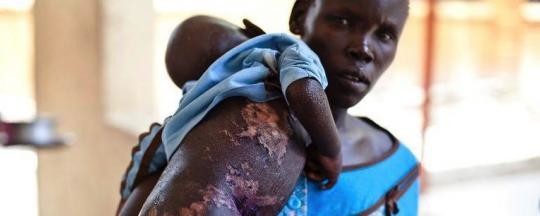South Sudan’s government has issued an advisory to humanitarian organizations not to publish independent statements on the food and nutrition situation in the country without “political endorsement” by the country’s presidency.
The Food Security Council, an office within the presidency, issued a statement dated 22 July claiming “sole authority for making official statements about the food security status of the country.”
As part of the presidency, which is in the hands of the SPLM-Juba faction, one of two main warring parties in the South Sudan conflict, the Food Security Council currently chairs the Technical Working Group of the Integrated Food Security Classification (IPC) process.
IPC is the main methodology by which a famine determination would or would not be made. The Working Group includes experts in food security, nutrition, livelihoods and humanitarian emergencies.
Aid agencies have been independently warning of the possibility of a famine in the country. They are now ‘requested’ not to “release or publish any independent or unilateral statements on the food and nutrition situation that are outside the technical process of the IPC and outside the political endorsement of the Republic of South Sudan Food Security Council.”
The statement, which was obtained by Radio Tamazuj and is published alongside this report at the link below, stresses: “We remind the Development Partners and the media that food security classification phases including famine (phase 5), are determined by internationally recognized indicators.”
The statement was signed by John Ogoto Kanisio, the secretary-general of the government food security office, which has its offices at the Office of the President Extension in the ministries complex in Juba.
File photo: A woman holds her severely malnourished baby in the malnutrition ward of the Al Sabah Children’s Hospital in Juba on March 14, 2014 (AFP/Ivan Lieman)




